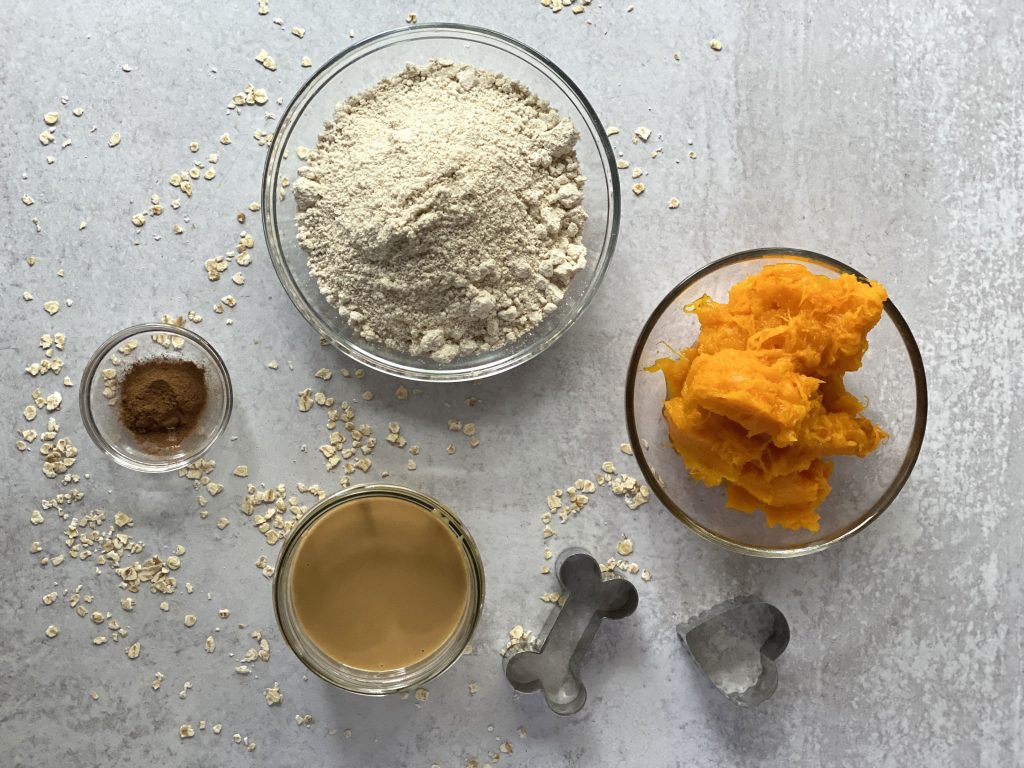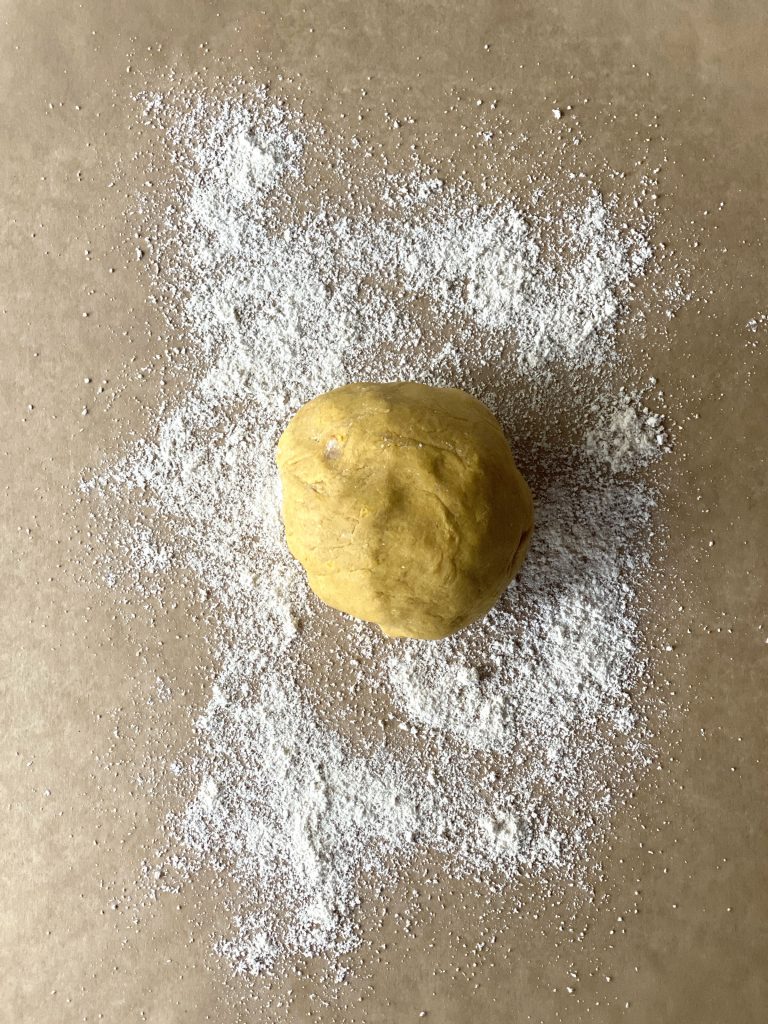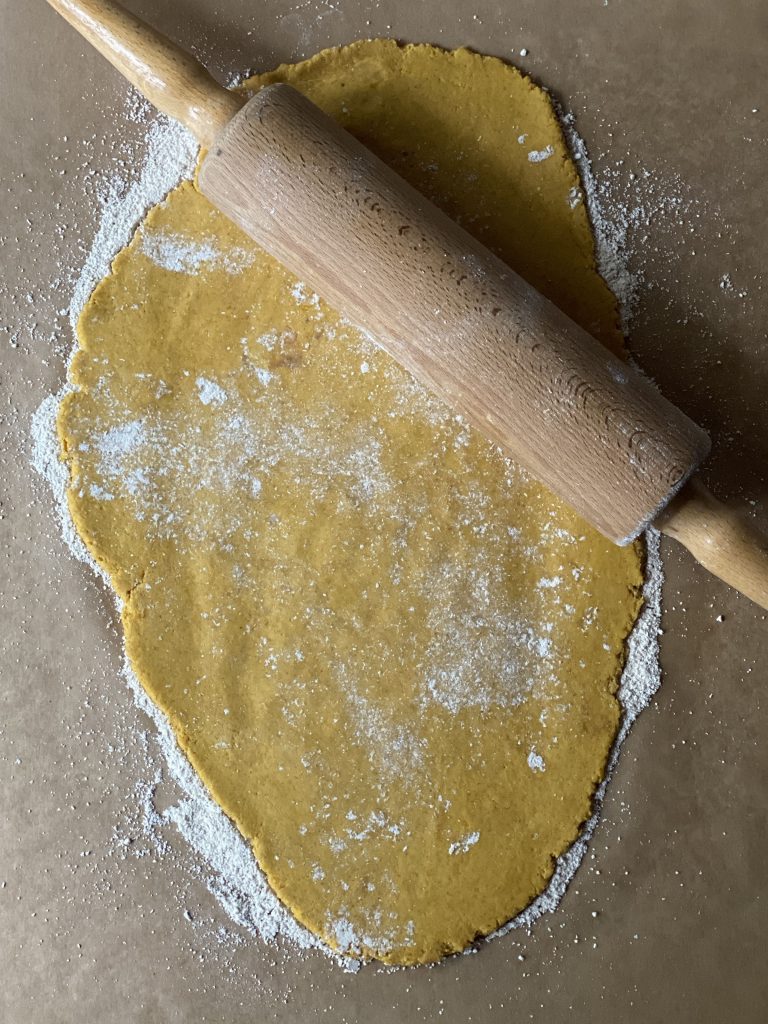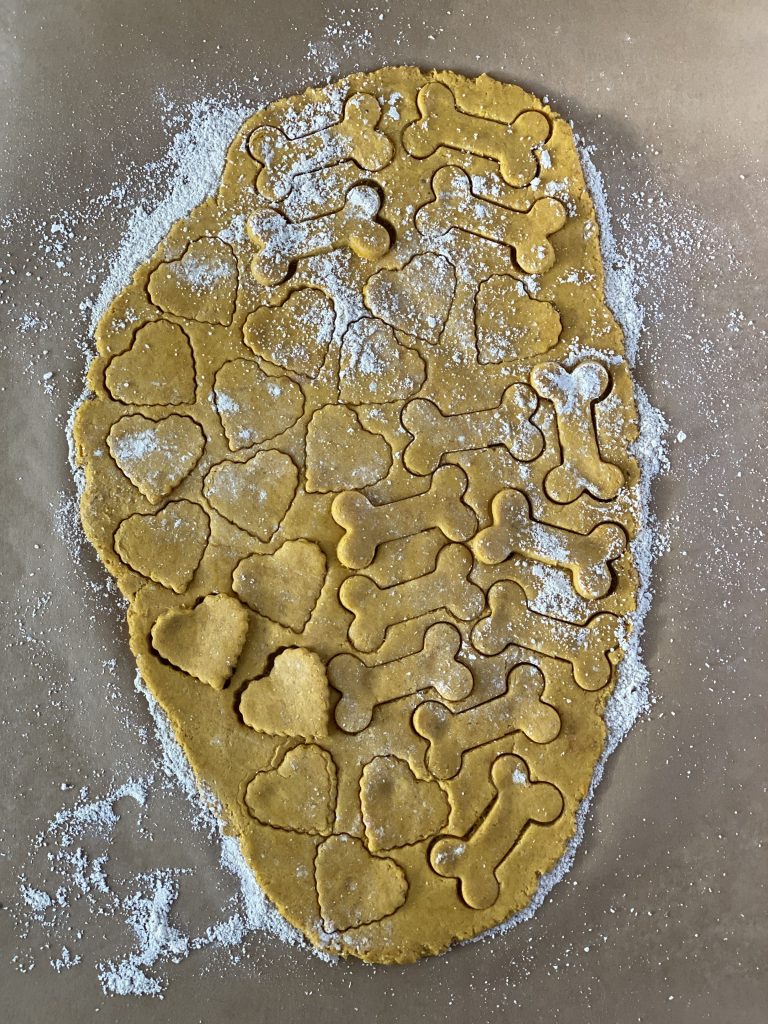Pumpkin Peanut Butter Dog Biscuits
Gather a few ingredients and your pup. Let’s make a homemade treat thats not only delicious but also packed with wholesome goodness.
INGREDIENTS:
Grams
200 grams pumpkin puree
256 grams peanut butter
136 grams oat flour
½ tsp ceylon cinnamon-optional
Cups
⅞ cups-canned or fresh 100% pure
1 cup-sugar free, salt free (xylitol free)
1 cup-extra for dusting (can)
Oat flour can be found in your baking aisle or by grinding rolled oats into a fine powder with a coffee grinder or food processor.
Pumpkin – 100% pure pumpkin puree-fresh or canned (make sure it is 100 pure pumpkin and not pie filling).

INSTRUCTIONS:
Preheat your oven to 325°F (163°C).
In a large bowl, combine the pumpkin puree and peanut butter. Mix until well combined.
Gradually add the oat flour to the pumpkin and peanut butter mixture, stirring until you have a firm dough. If the dough is too sticky, you can add a bit more oat flour.
Add the Ceylon cinnamon to the dough and mix it in evenly.
On a floured surface, roll out the dough to about 1/4 inch thickness.
Use cookie cutters to cut out shapes or simply cut the dough into squares.
Place the cut-out shapes on a greased or parchment-lined baking sheet.
Bake in the preheated oven for approximately 15-20 minutes or until the biscuits are firm and lightly browned.
Allow the biscuits to cool completely before serving them to your dog.



Always check with your veterinarian before introducing new ingredients into your dog’s diet, including cinnamon. Even though Ceylon cinnamon is considered safer, individual dogs may have sensitivities or allergies, and it’s crucial to monitor your dog for any adverse reactions. Additionally, moderation is key; too much of any new ingredient, even a generally safe one, can cause digestive upset in dogs.
Remember to store these biscuits in an airtight container to keep them fresh. Always check with your veterinarian before introducing new treats into your dog’s diet, especially if your dog has any specific dietary requirements or health conditions.

Ceylon cinnamon, also known as “true” or “real” cinnamon, is generally considered safer for dogs compared to Cassia cinnamon. The reason is that Cassia cinnamon, which is the more common variety found in most grocery stores, contains higher levels of coumarin. Coumarin is a natural compound that, in large amounts, can be harmful to the liver and kidneys.
Ceylon cinnamon, on the other hand, contains significantly lower levels of coumarin, making it a safer option for dogs when used in moderation. While cinnamon, in small amounts, can add flavor and potential health benefits to dog treats, it’s important to avoid excessive consumption.
Xylitol is a sugar substitute commonly used in human food products, including sugar-free gum, candy, baked goods, and even some peanut butter brands. While xylitol is safe for human consumption, it can be extremely toxic to dogs. The reason for this lies in how xylitol affects a dog’s metabolism.
When dogs ingest xylitol, their bodies mistakenly identify it as real sugar, leading to the release of insulin from the pancreas. However, unlike sugar, xylitol does not cause an increase in blood sugar levels. Instead, it causes a rapid and substantial release of insulin, which can result in hypoglycemia (low blood sugar) in dogs.
Hypoglycemia can lead to a range of symptoms, including vomiting, loss of coordination, seizures, and, in severe cases, it can lead to coma and death. Additionally, xylitol has been associated with hepatic necrosis, a potentially fatal liver condition in dogs.
The toxic dose of xylitol for dogs is relatively small, making it especially important for pet owners to be vigilant about checking ingredient lists, particularly in products like sugar-free gum, candies, and certain peanut butter brands. Even a small amount of xylitol can have serious consequences for a dog’s health, so it’s crucial to keep all xylitol-containing products out of reach of pets and to be aware of the ingredients in any human foods given to dogs. If you suspect your dog has ingested anything containing xylitol, seek immediate veterinary attention.

